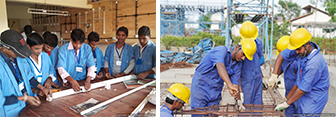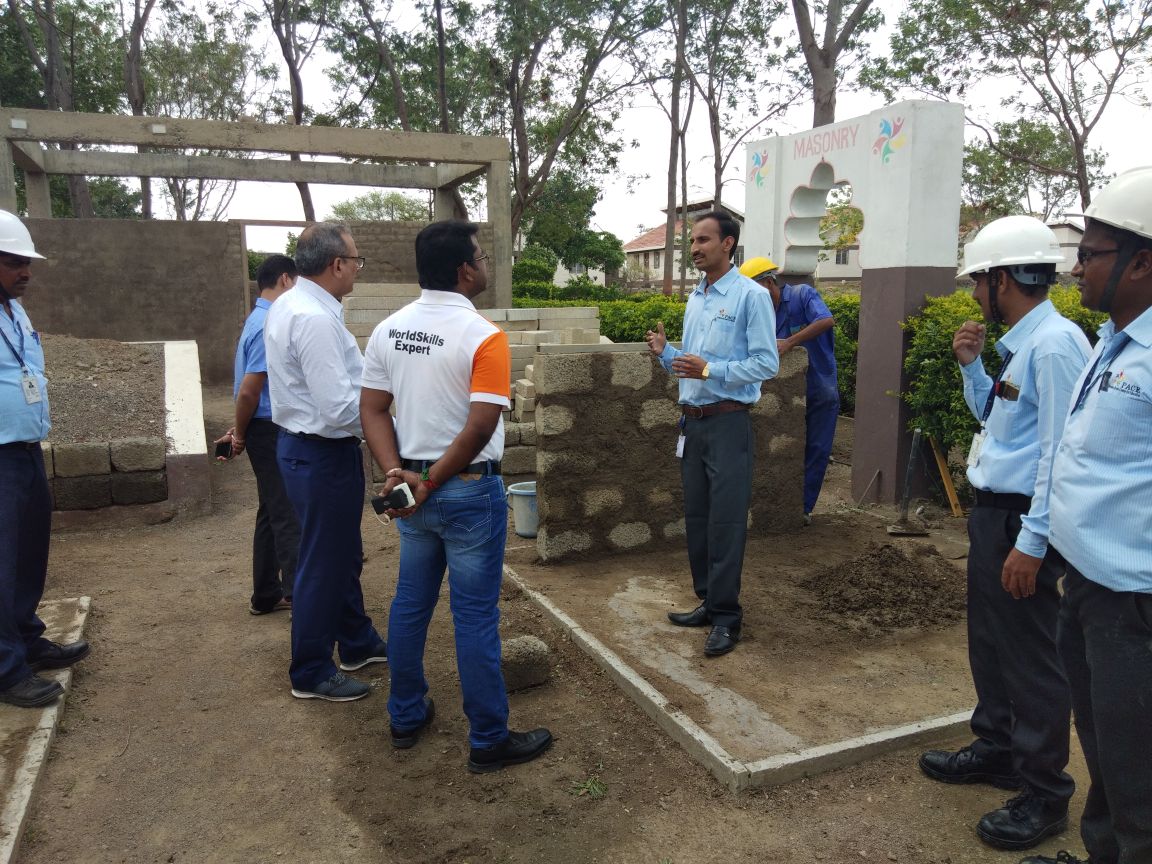SKILL BUILDING IN REMOTE AREAS
Census 2011 from the National Sample Survey Office (NSSO) indicates that 105 million fresh entrants to workforce will require skill training by 2022 (i.e. around 15 million every year). Some 300 million of the current working population will need additional training over the next 7 years. According to the 12th plan document of the Planning Commission, India’s labour force has increased from over 478 million in 2011 to over 502 million in 2017 and over 85% of this labour force has an educational qualification only till the secondary level of which over 55% only have an educational qualification till the primary level and only 2% have had vocational training.

Skill development as an important pillar for growth is often ignored and put on the backburner and perennially looked upon as a non-scalable model due to the high capital required and the low ROI. It is a huge challenge not only for the government, but also for the private sector and educational institutions to rise up and specialize in making youth employable and ensuring no mismatch between demand and supply. They must also focus on an increased usage of modern technology in the workplace/assembly line. Also, there is a mismatch between the aspiration of youngsters and the jobs available. For e.g. the construction sector usually has migrant workers from other states who are employed.
ANIL NAIK TECHNICAL TRAINING CENTRE
In the year 2006 there was a decision to focus on providing vocational training in Construction and Agromechanics to school dropouts and unemployed youth, in alignment with the locally available opportunities of employment and self - employment. The vocational training centre - ANTTC - was established in Kharel in the year 2013.

Duration of trades and On Job Training (OJT): At present all the trades offered are of six months duration. Four months of theory in the training center and two months of OJT arranged through contacts with industries located in and around Bilimora, Navsari, Surat, Hazira, Sachin, and Ankaleshwar.
On 7th Dec. 2017 a new training programme in Digital Literacy was inaugurated in ANTTC; this is financially supported by L&T Technology Services, and NASSCOM Foundation provides technical guidance, testing of the trainees and certificates to the trainees. So far more than 300 trainees of ANTTC and other youth have completed training. After the success of this initiative on Digital Literacy & considering newer job opportunities, an Office Assistance Programme has been launched with the help of Orion Edutech.
Taking into consideration the tremendous job opportunities in the state of Gujarat, a new training programme in Solar Power Technician Skills was started along with courses for Auto Mechanics, Electricians, Welders, Fitters & Fabricators. This set up will also be financially supported by Naik Charitable Trust and technically championed by the team from Hazira Works.
Orion Edutech was involved in setting up and managing two trades for needy women, Assistant Beauty Therapist and Self – employed Tailor.
CAPACITY BUILDING OF NGO PARTNERS
Building human and social capital is integral to strategic community investment because it leverages and multiplies the impact of LTPCT resources by strengthening local partner organizations, promoting self-reliance, and increasing the likelihood of project success. LTPCT believes that effective capacity building benefits both the donor and local stakeholders by generating inclusive processes that strengthen trust and build commitment and good relationships.

LTPCT has been striving to build the capacity of NGO partners to deliver quality training programs in remote areas. Transfer of knowledge from L&T to small NGOs to deliver technical training programs has been a huge success. NGO partners are trained through L&T’s Construction Skill Training Institutes on building labs, training modules, trainer development, industry partnerships, on the job training.
Apart from job related training, NGOs are capacitated on:
- Mobilization Strategies
- Strategies for Retention of Students during training
- Strategies for Enhanced Placement Opportunities
- Innovations
GENDER FOCUS IN SKILL BUILDING
Skill development initiatives often marginalize groups that need them most. Programs frequently do not meet the needs of these groups, providing training which is neither directly relevant to opportunities in the local job market, nor to the interests and needs of the trainees. The lack of attention paid to gender in such programs is a particularly wide-spread example of this. Women are increasingly integrated into the global labour force, and head growing numbers of households, yet they receive less training than men, and the training they do receive is often less relevant to the labour market, or linked to lower paying jobs.

We acknowledge the need for an inclusive strategy and the understanding of skills development in different geographies and cultural background as a valuable way of enabling women to access and use skills development opportunities in a genuinely empowering way. Technical skills are important, but they need to be understood and developed in the context of the full range of ‘life skills’ needed to engage in training, the labour market, and in negotiating the conditions under which those skills are exercised.
LTPCT is a front runner in creating and providing skill building opportunities to many women across seven states during the last seven years.
















